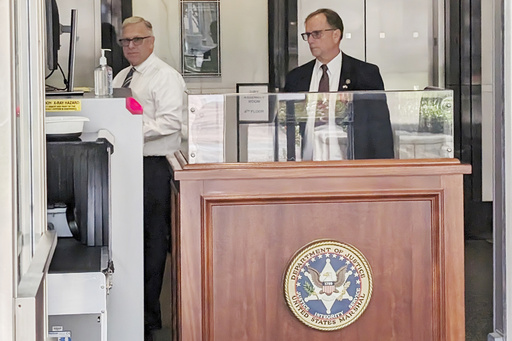In Oakland, California, a prolonged legal confrontation between Apple and Epic Games continues to unfold. Phil Schiller, an Apple executive responsible for overseeing the App Store, admitted in court on Monday that he originally resisted the imposition of fees on in-app transactions processed through external payment systems. His hesitancy was driven by concerns over potentially breaching a court directive intended to foster increased competition within the digital marketplace.
Schiller’s testimony took place in the same Oakland federal courtroom where, nearly nine months prior, he had also taken the stand in the ongoing legal conflict with Epic Games. Epic started this dispute over four and a half years ago, filing an antitrust lawsuit claiming that Apple had wrongfully monopolized its App Store, which generates billions annually through a payment system charging commissions between 15% and 30% on in-app sales.
Though Apple’s actions were not deemed monopolistic by U.S. District Judge Yvonne Gonzalez Rogers, she mandated the tech giant to lower the defenses surrounding its exclusive payment system for in-app purchases, thus permitting developers to include links to alternative payment options. Despite attempts to overturn this order, Apple ultimately conceded 13 months ago, enabling other payment systems.
Nevertheless, Apple’s compromise still includes charges of 12% to 27% on transactions processed through alternative systems, alongside other obstacles that Epic argues discourage developers from utilizing these different options. Judge Gonzalez Rogers is now contemplating whether to hold Apple in contempt and demand more significant reforms from the corporation based in Cupertino, California.
Since this evaluation began last May, the judge has voiced her impatience with Schiller and other Apple witnesses due to their vague recollections of how the alternative payment system rules were established. Her frustration led to a postponement of the proceeding while a different judge supervised the review of Apple’s internal documents to elucidate its decision-making process.
These additional documents aided Epic’s legal representative, Gary Bornstein, in jogging Schiller’s memory concerning his original hesitation about applying fees to transactions outside Apple’s payment systems. Schiller explained his earlier uncertainty about the legitimacy of levying such fees, emphasizing his consideration of what the injunction allowed.
Beyond the “compliance risk” associated with these fees, Schiller expressed apprehensions regarding the “collection risk,” given that Apple would need to rely on app developers to remit the money owed. In contrast, Apple’s internal system allows it to deduct its share before distributing the rest to developers. Schiller questioned the process if a developer failed to pay, and he expressed concerns about potentially straining Apple’s historically amicable relationships with developers over fee demands.
Eventually, Schiller aligned with the decision to enforce commissions in January 2024, following deliberations with a pricing committee that included Apple CEO Tim Cook and then-CFO Luca Maestri. During his testimony, Schiller also confirmed Cook’s initiative to alert consumers about security risks associated with alternative payment methods.
The latest hearings in this enduring legal saga are set to proceed on Tuesday and Wednesday, with scheduled testimony from additional witnesses, including Schiller’s senior subordinate, Carson Oliver, who had previously provided testimony the year before.





